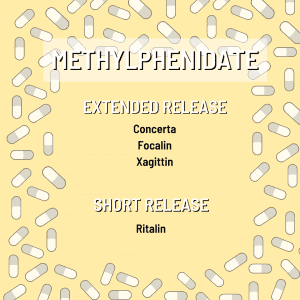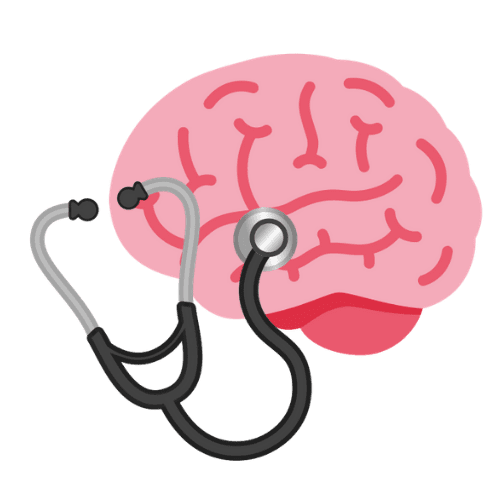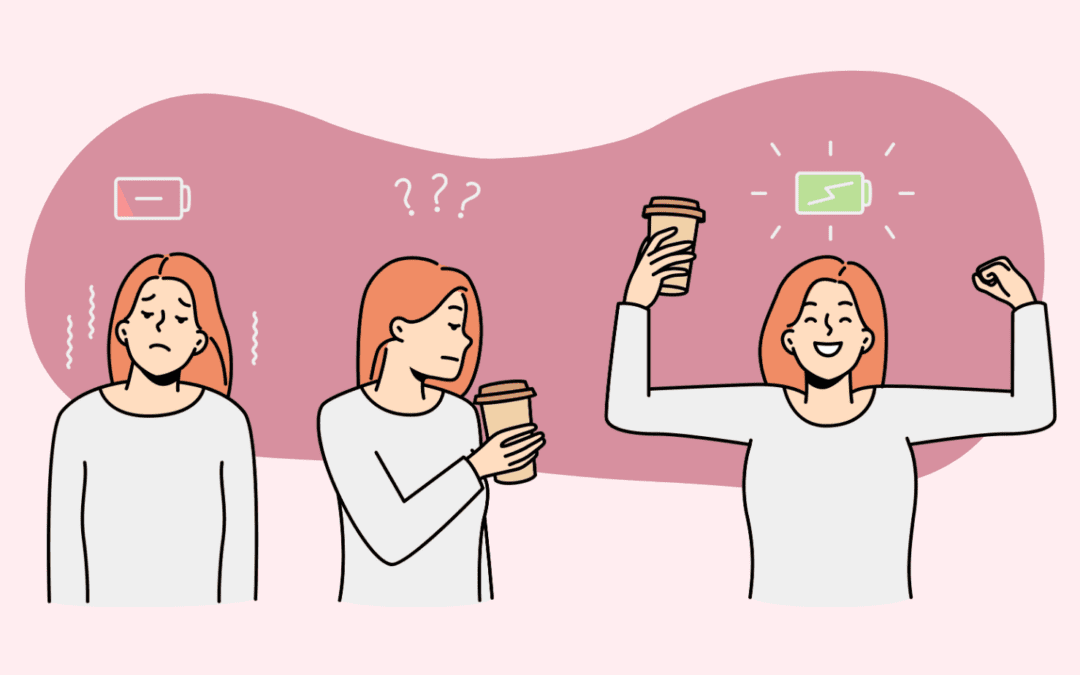Why do some people with ADHD self-medicate with caffeine, and claim it improves their symptoms, yet others avoid it at all costs? Read on for a simple guide to the science and research behind this.
Many people say they couldn’t live without caffeine, whether that’s in a hot drink or a refreshing glass of soda.
Caffeine is a stimulant. It interacts with the neurotransmitters in our brain to keep us alert and delay tiredness. It’s found in a lot of different beverages, including coffee, tea, soft drinks and energy drinks. Caffeine is legal, and generally safe, but too much can make you anxious and jittery. It has been shown that caffeine can improve wakefulness, reaction time and concentration. In other words, it can boost your cognitive performance.

So what’s the link between caffeine and symptoms of ADHD?
A common treatment for ADHD symptoms is medication, with a popular option being stimulants. In the UK, methylphenidate is the first-line stimulant. It is a short-acting stimulant drug, which blocks presynaptic reuptake of dopamine. Dopaminergic pathways are thought to be impaired in ADHD, and methylphenidate increases the number of “useful” dopamine that our brains can use. It helps you concentrate, stay alert and use your cognitive functions effectively… just like caffeine.
Self-medication with caffeine is fairly common.
Lots of adults with undiagnosed ADHD have a substantial intake of caffeine. Why? Whether they recognise this or not, it can bring them up to a similar level of cognitive performance as their non-ADHD peers.
When I found this out, it admittedly blew my mind. I drank a lot of Diet Coke in high school, and nowadays I can easily get through 10 litres of Pepsi in a week. Someone I know recently diagnosed with ADHD has a similar inclination for flat whites.
Lots of people with ADHD don’t get a boost over their peers when they consume caffeine.
It just creates an equal playing field. Interestingly, many people with ADHD report that caffeine doesn’t really affect them. In fact, it slows down their hyperactivity and helps them fall asleep. If this sounds like you… you may well have ADHD.
The use of caffeine as a treatment for ADHD has been researched. If caffeine makes us feel more focused, can we use it to treat impaired cognition? However, to date, there isn’t any conclusive evidence either way. One reason for this is that it’s slowly becoming apparent that ADHD has different causes in different people. This is why caffeine only improves ADHD symptoms for some. Unfortunately, it also means that no single treatment will work for everyone.
Stimulant medications are still a superior option for tackling problematic ADHD symptoms. You would need to consume a lot of caffeine to match their effects. Some people taking stimulants find that they crave caffeinated beverages less, now they’ve got a medication boosting their dopamine levels. I personally still have caffeine most days, but nowhere near the amount I consumed before medication. Others find that they’re much more vulnerable to the negative effects of caffeine, experiencing a worsening of their hyperactive symptoms. This is why your psychiatrist might recommend that you skip the coffee while you’re titrating a new medication.
There is no one-size-fits-all approach in symptom management.
Do what works best for you, but discuss it with whoever prescribes your medication. It’s even more important that you do this if you’ve got any health conditions. I’m personally no stranger to self-medicating with caffeine. I like to reassure myself that it’s better than self-medicating with anything illegal or dangerous. It’s certainly more socially acceptable – liking coffee seems to be some people’s whole personality these days.
The boost that caffeine gives my ADHD brain is a great tool. This is especially convenient when my meds have worn off or aren’t available to me. It also means I can say, with a totally straight face, that my stockpile of Pepsi Max is medicinal…
Do you enjoy reading about the science behind ADHD?
Our Symptom Spotlight series offers a short, easy-to-read summary of common ADHD symptoms.
We also have a selection of neuroscience-focused articles.
“If I can’t see it, it doesn’t exist”: Object Permanence, Working Memory and ADHD – read here
What is Executive Functioning? – read here

